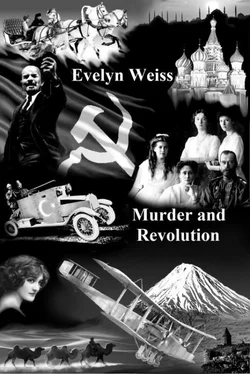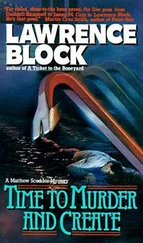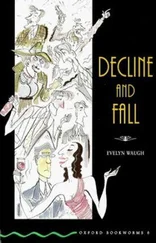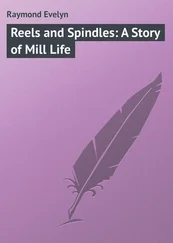I’m still holding the claw hammer. I hit the edge of the window sill with the claw, and the wood splinters. I pull free a long, thin splinter from the sill. I’m lucky; it slips through the gap between the window and the frame. I slide it upwards to the window catch, lifting, trying to be slow and careful. The catch pushes up, and moments later, I pull the window open. A wall of smoke billows at me.
I yell for help. But the surrounding forest is empty and silent. I turn and pull myself up through the smoke, over the window sill, into the professor’s room.
I can barely see in the dense smoke, but I can make out his figure, lying still as death on his bed. It’s like an oven in this room, but there are no flames yet. I slap the professor’s face. His eyes remain closed, but he frowns, as if in a bad dream. He’s still alive – but totally unconscious.
I must get him out of the window. Axelson is middle height, but I’m small and slight. I push him with every fiber of my being. Slowly, he slides off the bed, clattering onto the wooden floor. Even that doesn’t wake him.
His body is like a slab of dead meat; I try to push him along the carpet. Then I find it’s easier to roll him. Bit by bit, I roll him across the floor, until he’s underneath the window. Now comes the part I haven’t yet had time to think about. Somehow, I have to lift this weight bodily four feet off the floor.
Without warning, the door of the professor’s room falls inwards, as if hit with a battering ram. A great gout of flame bursts towards us.
Options run through my head. And there’s only one that gives me any chance. I stand at the window and scream, as if the fires of hell are burning me.
I see a figure in the moonlight, out there near the road at the edge of the forest. Is he moving towards the house, or away from it? Yes. I’ve caught his attention. He breaks into a run. In seconds, he’s at the window. I choke at him through the smoke.
“A man – in here. Help me.”
And he does. In a moment he’s over the windowsill. Flames are now all around us. We pull at the professor’s insensate figure. Together, spluttering in the smoke, we lift the body vertical. Then the stranger grips Axelson’s waist and lifts it bodily, level with the window. The head flops forward, banging on the window frame, but then it falls outside the window. The man’s voice is urgent.
“Push the feet upwards!”
I do. The man lifts the Axelson’s hips higher, I push the feet, and like a huge snail, the professor’s body slides slowly over the windowsill. The man bundles the legs through the window.
“You next, Miss!”
He lifts me. I’m like a feather in his arms; one second passes, and he throws me through the window. I’m rolling among the vegetables of the cottage garden. The air is still choking me, but I stagger to my feet. The man has jumped through the window like an athlete, and he and I grab the professor under the arms, and drag the body through a patch of pumpkins to the cottage gate.
I look back, and all I see is fire. The garden is now burning; every plant is sprouting flames. I hear the man’s voice.
“We must get this body across the road, away from the fire.”
I pull at the professor’s arms, but I slip. The man simply picks me up again, and deposits me at the far side of the road. Then he runs back to the blazing fence. Thirty seconds later, I see him striding back towards me, carrying the professor’s body over his shoulder. Against the glare, the man’s silhouette is tall and strong. The red glow illuminates the outline of his leather boots, the edges of his woolen jacket. It’s a military uniform. Just like the jacket I saw a few minutes ago, inside the corridor of the cottage.
The man speaks quickly to me. “There’s nobody else in the house?”
“No.”
His eyes swivel away from me. “Hello! Can you help?”
Who is he speaking to? My head swoons: everything seems dim around me, and I cough up a mouthful of saliva, black with soot. But I see, looking into my eyes, the face of a peasant woman, and she answers the man.
“We heard a woman screaming. Then we saw a light, through the trees. We own that old cottage—” she points to the mass of flames “– but we have not been using it this year. Our farm is on the other side of the forest. This is my son.”
She nudges the young man by her side, and he steps forward out of the shadows. I recognise him: it’s Kaspar. Then the woman looks at me. “You, Miss, must come and rest for the night with us. And my daughter can lend you some day clothes.”
The uniformed man towers over the two peasants. “In the meantime, I will take this unconscious man straight to the hospital in Ivangorod. Do you have a cart at your farm that I could use?”
“Yes. Kaspar, take the horse and cart. Put the man’s body in the back, and go along with this soldier.”
Kaspar’s mother is a better cook than he is. It’s a hour after dawn, and I’m finishing a hearty breakfast, but I feel sick with anxiety for the professor. Then Kaspar appears at the farmhouse door.
“Your friend will live. He is still unconscious, but the doctors think he will come round, maybe quite soon.”
“Thank you so much.”
“The unconsciousness – it is nothing to do with the smoke, Miss. They think he has been drugged in some way. That would also explain why he seemed to have fallen asleep in his room while fully dressed.”
I look at him. “That meal you prepared for us, Kaspar…”
“Oh, that! A gentleman called at our farm yesterday afternoon. He said that two distinguished foreigners would like to stay in the old cottage overnight. An odd request, but he offered us good money. Anyway, he said he would provide the food, if I could cook it. He brought us a piece of steak – very expensive, he told me. I have no experience of cooking such things, but he asked me to do my best.”
“Who was this person?”
“He said there was no need to know his name. My family – we are Estonians, not Russians. So when someone like that man talks to me, I don’t ask questions. If I did, then trouble would come to me and my family.”
“What kind of trouble?”
Kaspar shrugs. “Just the usual things they do to Estonian families. The man was a military person, in uniform. I thought that both of you were his friends. I’m sorry, but I assumed you were Okhrana.”
I know that word – but I ask anyway. Kaspar responds, in a matter of fact voice.
“Yes, Okhrana. The secret police.”
Professor Axelson’s head is propped on a pillow, and his sleeping face peeps above a white sheet. It’s now nine o’clock in the morning, and we’re in a private hospital room next to a large ward of injured soldiers. A doctor is standing with me, holding the professor’s case notes in his hand.
“He inhaled a little smoke, but his breathing is fine now. There are no other ill effects of the fire. As I told the young man who brought him in, he appears to be unconscious because he has been drugged. A powerful sleeping draught. I have no idea when it will wear off.”
“Two men brought him here, Doctor. Did the other man give his name?”
“No. Just one man, a Mr Kaspar Sepp, brought him in. By the way, we have dressed your friend in a hospital gown: do you mind taking his clothes? We have put them in this bag.”
I sit by the bedside. I can’t help reaching under the sheets, and taking the professor’s hand. I hold it, gripping the passive fingers.
“Professor. Can you hear me? It’s Agnes here. Please, please wake up.”
The professor lies unmoving. I sit for a long time, thinking. It’s now been eighteen months since I was home with Ma and Pa. Winter’s a busy season for drugstore owners, and I was needed at home to help Pa dispense pills and potions to the folks of Putnam until February 1915, when I got the opportunity I wanted. I sailed to Europe and joined the Red Cross on the battlegrounds of Flanders. Apart from a couple of days as a tourist in Geneva, my trip to Stockholm was my first holiday from nursing the wounded of the Great War. Many soldiers I treated had no injuries to the body; their wounds were to the mind. Nervy, stammering and sometimes completely dumb, they were living husks of the young men they had once been.
Читать дальше












